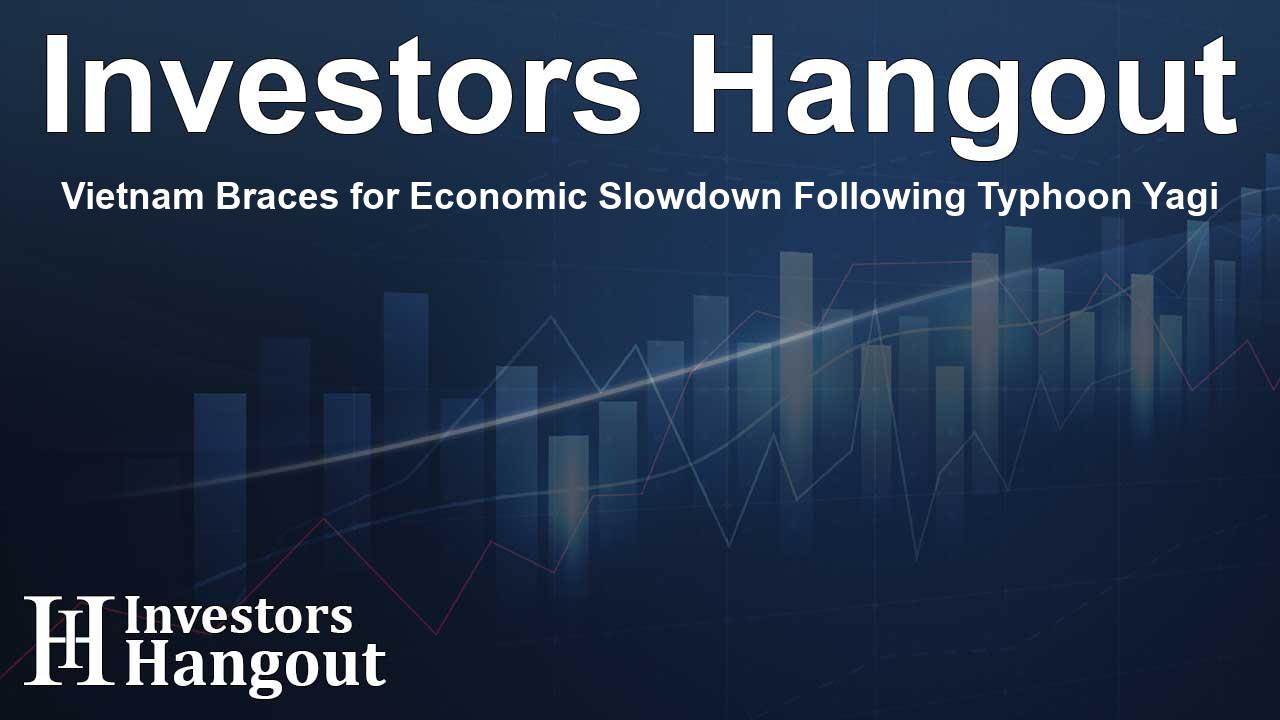Vietnam Braces for Economic Slowdown Following Typhoon Yagi

Vietnam's Economic Outlook Amid Typhoon Yagi's Aftermath
In a significant revelation, Vietnam's economic growth for the coming year is projected to experience a decline of 0.15%. This downturn is attributed to the catastrophic impact caused by Typhoon Yagi, regarded as the most formidable storm in Asia this year. Nguyen Chi Dung, the Minister of Planning and Investment, made this announcement amidst an urgent government meeting to assess the ongoing challenges.
Typhoon Yagi's Devastating Impact
The recent landfall of Typhoon Yagi has led to widespread destruction, severely affecting the country’s infrastructure and industrial capabilities. Initial estimates suggest that the damages from this storm have incurred costs amounting to approximately 40 trillion dong ($1.63 billion). Minister Dung stressed the urgency of the situation, noting that many areas of the country are experiencing a slowdown in growth rates compared to previous periods.
Projected Growth Rates
Analyzing the storm's implications, projections indicate that GDP growth might drop significantly in the latter half of the year. The third and fourth quarters could see reductions of 0.35% and 0.22%, respectively, if we consider a scenario without the storm’s interference. This reflects broader challenges faced by various local economies navigating the aftermath of Typhoon Yagi.
Affected Sectors and Casualties
The storm's toll has been staggering, with reports indicating that at least 281 lives have been lost, and 67 individuals remain missing. Flooding has inundated vast agricultural areas, damaging around 190,000 hectares of rice fields and severely impacting 48,000 hectares dedicated to cash crops, including corn and cassava. Furthermore, nearly 232,000 homes in northern Vietnam have suffered damage, exacerbating the economic strain.
Haiphong City and Industrial Losses
The city of Haiphong, known for its extensive industrial parks, faced enormous financial challenges, with damages estimated at about 11 trillion dong ($448.43 million). The economic ramifications are immense, particularly for industries reliant on stable operations.
Efforts to Mitigate Economic Impact
In light of these challenges, the Vietnamese government is striving to control inflation and aims to achieve a GDP growth target of around 7% for this year, despite the setbacks presented by Typhoon Yagi. The desire to maintain economic resilience speaks volumes about the government’s commitment to recovery and growth.
Conclusion
While Typhoon Yagi's wrath has undeniably shaken various sectors of Vietnam's economy, the government's determined approach seeks to counterbalance this effect. As the nation recovers from this disaster, the focus remains on stabilizing growth and supporting affected regions.
Frequently Asked Questions
What is the expected decline in Vietnam's GDP in 2024?
Vietnam's GDP is expected to decline by 0.15% due to the impacts of Typhoon Yagi.
How much damage did Typhoon Yagi cause?
The damages from Typhoon Yagi have been estimated at approximately 40 trillion dong ($1.63 billion).
What sectors have been most affected by the typhoon?
Agriculture, infrastructure, and residential areas have seen significant impacts from the storm.
How many casualties resulted from Typhoon Yagi?
The disaster has caused at least 281 fatalities and left 67 people missing.
What efforts is Vietnam making to control inflation post-typhoon?
The government aims to achieve around 7% GDP growth this year while controlling inflation despite the challenges.
About Investors Hangout
Investors Hangout is a leading online stock forum for financial discussion and learning, offering a wide range of free tools and resources. It draws in traders of all levels, who exchange market knowledge, investigate trading tactics, and keep an eye on industry developments in real time. Featuring financial articles, stock message boards, quotes, charts, company profiles, and live news updates. Through cooperative learning and a wealth of informational resources, it helps users from novices creating their first portfolios to experts honing their techniques. Join Investors Hangout today: https://investorshangout.com/
Disclaimer: The content of this article is solely for general informational purposes only; it does not represent legal, financial, or investment advice. Investors Hangout does not offer financial advice; the author is not a licensed financial advisor. Consult a qualified advisor before making any financial or investment decisions based on this article. The author's interpretation of publicly available data shapes the opinions presented here; as a result, they should not be taken as advice to purchase, sell, or hold any securities mentioned or any other investments. The author does not guarantee the accuracy, completeness, or timeliness of any material, providing it "as is." Information and market conditions may change; past performance is not indicative of future outcomes. If any of the material offered here is inaccurate, please contact us for corrections.